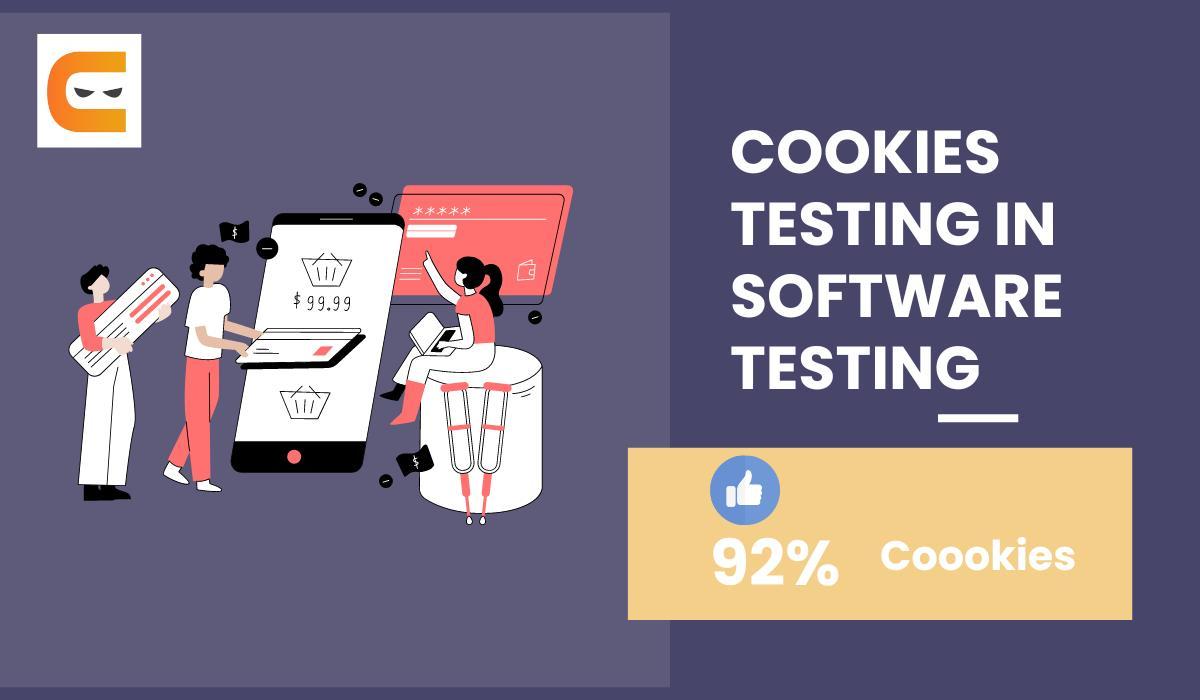Types of Cookies
-
Session Cookies: These are temporary and get deleted once the browser is closed.
-
Persistent Cookies: They remain on the user's device for a set period, even after closing the browser.
- Third-party Cookies: Generated by third-party websites, such as advertisers, to track users across multiple sites.
Why Test Cookies?
Functionality: To ensure that user sessions and preferences are handled correctly.
Security: To verify that sensitive information within cookies is secure.
Performance: To check that cookies do not negatively impact the loading time and overall performance of the site.
Compliance: To ensure adherence to regulations concerning privacy and data protection.
Methods for Cookies Testing
1. Cookie Attributes Testing
Checking the attributes of a cookie such as Domain, Path, Expires, Secure, etc. Here's what each attribute represents:
-
Domain: The domain that is created and can read the cookie.
-
Path: The URL path that must exist in the requested URL.
-
Expires: The expiry date/time of the cookie.
- Secure: Indicates if the cookie is sent over HTTPS.
2. Session Handling Testing
Verifying that session cookies are deleted after closing the browser and that user sessions are maintained accurately across pages.
3. Security Testing
Ensuring that cookies are encrypted if they contain sensitive information and verifying that they are not accessible through cross-site scripting (XSS).
Practical Example: Testing Cookies Using Selenium WebDriver in Java
Here's an example to demonstrate cookies testing using Selenium WebDriver in Java:
import org.openqa.selenium.Cookie;
import org.openqa.selenium.WebDriver;
import org.openqa.selenium.chrome.ChromeDriver;
public class CookiesTesting {
public static void main(String[] args) {
WebDriver driver = new ChromeDriver();
driver.get("https://www.example.com");
// Get a specific cookie
Cookie cookie = driver.manage().getCookieNamed("session");
// Print cookie details
System.out.println("Name: " + cookie.getName());
System.out.println("Domain: " + cookie.getDomain());
System.out.println("Path: " + cookie.getPath());
System.out.println("Expiry: " + cookie.getExpiry());
driver.quit();
}
}
This code snippet fetches a specific cookie named "session" from the example website and prints its attributes.
Best Practices
Validate Cookie Attributes: Ensure that the attributes like Domain, Path, and Secure are set correctly.
Encrypt Sensitive Information: Always encrypt sensitive information stored in cookies.
Follow Legal Compliance: Comply with regulations such as GDPR in handling user information within cookies.
Frequently Asked Questions
Can cookies pose a security threat?
Yes, if not handled securely, cookies can expose sensitive user information, leading to vulnerabilities like XSS attacks.
How long do persistent cookies stay on a user's device?
Persistent cookies have an expiration date and stay on the user's device until that date or until manually deleted.
Are cookies essential for a website's functionality?
While not always essential, cookies often enhance functionality by remembering user preferences, maintaining sessions, and tracking user behavior.
Conclusion
Cookies testing is a crucial aspect of software testing, ensuring that web applications deliver a secure, functional, and consistent user experience. From verifying the attributes and session handling to conducting robust security checks, cookies testing encompasses a wide range of validations that are vital for today's web applications.
By following best practices and utilizing tools like Selenium WebDriver, testers can efficiently conduct cookies testing, contributing to a safer and more user-friendly web environment. Whether you are a seasoned tester or a beginner, understanding and implementing cookies testing can significantly elevate the quality of your web application testing.





